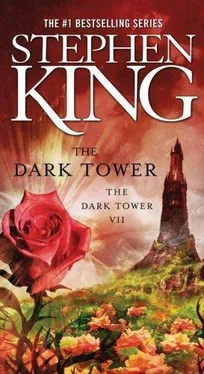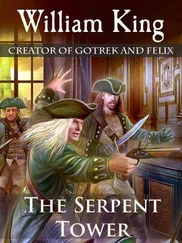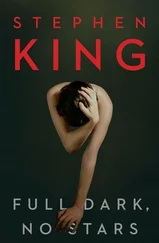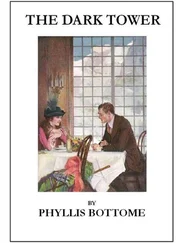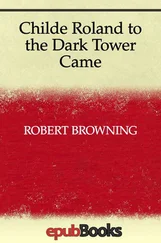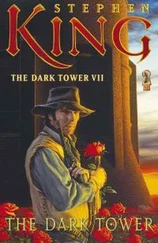“How did you know?” he asked.
She thought back to the hotel where Mia had left Black Thirteen. Later on, after they’d left, Jake and Callahan had been able to get into Room 1919 because someone had left them a note and ( dad-a-chee ) a key. Jake’s name and This is the truth had been written on the envelope in a hybrid of cursive script and printing. She was sure that if she had that envelope with its brief message and compared it to the message she’d found in the bathroom, she would find the same hand made both.
According to Jake, the desk-clerk at the New York Plaza — Park Hotel had told them the message had been left by a man named Stephen King.
“Come with me,” she said. “Into the bathroom.”
Like the rest of the hut, the bathroom was smaller now, not much more than a closet. The tub was old and rusty, with a thin layer of dirt in the bottom. It looked like it had last been used…
Well, the truth was that it looked to Susannah like it had never been used. The shower-head was clotted with rust. The pink wallpaper was dull and dirty, peeling in places. There were no roses. The mirror was still there, but a crack ran down the middle of it, and she thought it was sort of a wonder that she hadn’t cut the pad of her finger, writing on it. The vapor of her breath had faded but the words were still there, visible in the grime: ODD LANE,and, below that, DANDELO.
“It’s an anagram,” she said. “Do you see?”
He studied the writing, then shook his head, looking a bit ashamed.
“Not your fault, Roland. They’re our letters, not the ones you know. Take my word for it, it’s an anagram. Eddie would have seen it right away, I bet. I don’t know if it was Dandelo’s idea of a joke, or if there are some sort of rules glammer things like him have to follow, but the thing is, we figured it out in time, with a little help from Stephen King.”
“ You figured it out,” he said. “I was busy laughing myself to death.”
“We both would have done that,” she said. “You were just a little more vulnerable because your sense of humor…forgive me, Roland, but as a rule, it’s pretty lame.”
“I know that,” he said bleakly. Then he suddenly turned and left the room.
A horrid idea came to Susannah, and it seemed a very long time before the gunslinger came back. “Roland, is he still…?”
He nodded, smiling a little. “Still as dead as ever was. You shot true, Susannah, but all at once I needed to be sure.”
“I’m glad,” she said simply.
“Oy’s standing guard. If anything were to happen, I’m sure he’d let us know.” He picked the note up from the floor and carefully puzzled out what was written on the back. The only term she had to help him with was medicine cabinet . “ ‘I’ve left you something.’ Do you know what?”
She shook her head. “I didn’t have time to look.”
“Where is this medicine cabinet?”
She pointed at the mirror and he swung it out. It squalled on its hinges. There were indeed shelves behind it, but instead of the neat rows of pills and potions she had imagined, there were only two more brown bottles, like the one on the table beside the La-Z-Boy, and what looked to Susannah like the world’s oldest box of Smith Brothers Wild Cherry Cough Drops. There was also an envelope, however, and Roland handed it to her. Written on the front, in that same distinctive half-writing, half-printing, was this:
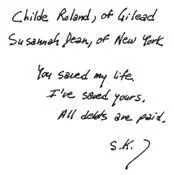
“Childe?” she asked. “Does that mean anything to you?”
He nodded. “It’s a term that describes a knight — or a gunslinger — on a quest. A formal term, and ancient. We never used it among ourselves, you must ken, for it means holy, chosen by ka. We never liked to think of ourselves in such terms, and I haven’t thought of myself so in many years.”
“Yet you are Childe Roland?”
“Perhaps once I was. We’re beyond such things now. Beyond ka.”
“But still on the Path of the Beam.”
“Aye.” He traced the last line on the envelope: All debts are paid. “Open it, Susannah, for I’d see what’s inside.”
She did.
It was a photocopy of a poem by Robert Browning. King had written the poet’s name in his half-script, half-printing above the title. Susannah had read some of Browning’s dramatic monologues in college, but she wasn’t familiar with this poem. She was, however, extremely familiar with its subject; the title of the poem was “Childe Roland to the Dark Tower Came.” It was narrative in structure, the rhyme-scheme balladic (a-b-b-a-a-b), and thirty-four stanzas long. Each stanza was headed with a Roman numeral. Someone — King, presumably — had circled stanzas I, II, XIII, XIV, and XVI.
“Read the marked ones,” he said hoarsely, “because I can only make out a word here and there, and I would know what they say, would know it very well.”
“Stanza the First,” she said, then had to clear her throat. It was dry. Outside the wind howled and the naked overhead bulb flickered in its flyspecked fixture. “My first thought was, he lied in every word,That hoary cripple, with malicious eyeAskance to watch the working of his lieOn mine, and mouth scarce able to affordSuppression of the glee, that pursed and scoredIts edge, at one more victim gained thereby.”
“Collins,” Roland said. “Whoever wrote that spoke of Collins as sure as King ever spoke of our ka-tet in his stories! ‘He lied in every word!’ Aye, so he did!”
“Not Collins,” she said. “Dandelo.”
Roland nodded. “Dandelo, say true. Go on.”
“Okay; Stanza the Second. “What else should he be set for, with his staff?What, save to waylay with his lies, ensnareAll travellers who might find him posted there,And ask the road? I guessed what skull-like laughWould break, what crutch ’gin write my epitaphFor pastime in the dusty thoroughfare.”
“Does thee remember his stick, and how he waved it?” Roland asked her.
Of course she did. And the thoroughfare had been snowy instead of dusty, but otherwise it was the same. Otherwise it was a description of what had just happened to them . The idea made her shiver.
“Was this poet of your time?” Roland asked. “Your when?”
She shook her head. “Not even of my country. He died at least sixty years before my when.”
“Yet he must have seen what just passed. A version of it, anyway.”
“Yes. And Stephen King knew the poem.” She had a sudden intuition, one that blazed too bright to be anything but the truth. She looked at Roland with wild, startled eyes. “It was this poem that got King going! It was his inspiration! ”
“Do you say so, Susannah?”
“Yes!”
“Yet this Browning must have seen us .”
She didn’t know. It was too confusing. Like trying to figure out which came first, the chicken or the egg. Or being lost in a hall of mirrors. Her head was swimming.
“Read the next one marked, Susannah! Read ex-eye-eye-eye.”
“That’s Stanza Thirteen,” she said. “As for the grass, it grew as scant as hairIn leprosy; thin dry blades pricked the mudWhich underneath looked kneaded up with blood.One stiff blind horse, his every bone a-stare,Stood stupefied, however he came there;Thrust out past service from the devil’s stud!
“Now Stanza the Fourteenth I read thee. “Alive? He might be dead for aught I know,With that red gaunt and colloped neck a-strain,And shut eyes underneath the rusty mane;Seldom went such grotesqueness with such woe;I never saw a brute I hated so;He must be wicked to deserve such pain.”
Читать дальше
